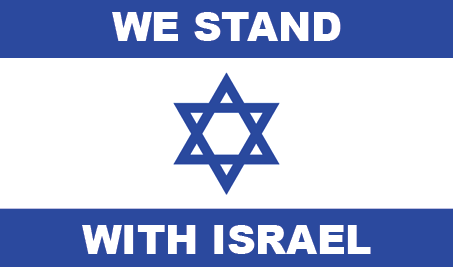
Dear JCCNS Members and Community,
The month of Elul, which leads up to the holy days of Rosh Hashanah, traditionally serves as a time to consider and reflect upon one’s own spiritual growth. Many consider this a meaningful time to visit the graves of loved ones who have passed to connect more deeply with the themes of self-reflection, renewal, and repentance. During my studies with Aish HaTorah, I learned that my actions in this world influence my beloved deceased parents in the Olam Habah, the world to come, and this belief helps me focus my mind on doing what I can to be my very best self, each year, as I prepare for Rosh Hashanah and Yom Kippur. Much like the emotions and feelings inspired by attending a funeral, a graveside visit may cause one to ponder the greater meaning and purpose of life and our own individual legacy.
This year, I am keenly aware that the first anniversary of the horrific October 7th massacre falls between Rosh Hashanah and Yom Kippur. The world’s reaction to Hamas’s vicious and barbaric attack, as well as the ongoing war in Gaza and the upsurge of Jew-hatred worldwide, has led many of us to seek a better understanding and appreciation of our kinship with our fellow Jews. Our personal feelings and connections to the events and the people of Eretz Yisrael, as well as ties to Jews in our own country, will likely affect the self-reflection we embark on as we strive to better ourselves by matching our highest aspirations with our choices and actions. Prioritizing the need for Israel’s right to exist, supporting the fight against terrorist organizations like Hamas, and recognizing the obvious surge in visible Jew-hatred may be part of the equation in each Jew’s act of self-assessment this year.
Jew-hatred over the centuries has been a “shape-shifting” phenomenon. Over hundreds of years, we have been accused of deicide, of being communists, of being greedy capitalists, of being rootless cosmopolitans, and the list goes on and on. Now that we, the Jewish people, have our own state, and are collectively mourning the deaths of innocent civilians and brave IDF soldiers from brutal attacks by terrorists, we still witness this tiny country of ours being defamed, demonized and held to standards that are not applied to any other country striving to defend itself. Considering how our enemies have defined us, I believe it is critical to focus on our own definition of who we are and to cultivate a strong Jewish identity and sense of individual and collective pride that can help us confront the latest iterations of worldwide Jew-hatred.
The Talmud teaches us that “All Jews are guarantors for one another” and that we have responsibility for one another. While it is true that the concept of Tikkun Olam has been interpreted to mean “helping to repair and improve the world” writ large, tradition teaches that our first level of responsibility is to our own families, then to our extended Jewish family, particularly when under attack. The core of Hillel’s famous dictum that I find most relevant to our current circumstances is the well-known statement, “If I am not for myself, who will be for me?” History has tragically taught us that, when threatened, ultimately the defense of Jews has depended mainly, if not solely, on ourselves. When we are not unified and feel only loosely connected by our faith to fellow Jews, tragic consequences ensue.
It is therefore especially relevant this year to reflect on the nature of Jewish identity and belonging through the lens of our history and spiritual inheritance. We recall that our people originated with the Patriarchs and Matriarchs: a family of seventy went down to Egypt, experienced a population explosion, and arrived at Mount Sinai as an entire Israelite nation.
Parenthetically, in exploring the ties that bind the Jewish people, it is illuminating to ponder the question, if we are a “genetically based tribe,” how do converts become Jews? Author Sara Yoheved Rigler notes that for halachic conversion accepting the mitzvot is a prerequisite, and once completed, the spiritual transformation is permanent, regardless of one’s future practice or laxity of belief. She submits that conversion is like a chemical reaction and as such, through the process, a new person and a new soul are created, and this is irreversible. Her answer to the question, “Are we a race or a religion?” cannot be answered on a physical level because, in her mind, the definition of a Jew is spiritual.
The Kabbalists go one step further, according to Rigler, and teach that the Jewish people are one collective soul. It has individual components, “…like a body is composed of myriads of cells.” Rigler adds, “The greatest danger to the collective soul of the Jewish people is when its constituent cells attack each other,” like a cancer.
Judaism provides a practical tool kit for living a full and meaningful life. I believe that cultivating one’s own Jewish identity first is the key to eventually appreciating the idea of Jewish peoplehood overall, ultimately strengthening our connection to each other. This cultivation is unique to everyone and can be expressed in many ways, but a sense of shared values, history, and a common destiny is what is needed at this moment. We know from our often-tragic history that the alternative of baseless hatred, sinat hinam, indifference, or lack of unity, has not turned out well for Jews.
Dr. Ruth Kabessa Abramzon, media personality and senior researcher at the Israel Defense and Security Forum, suggests that beyond the threat of persecution, what drove Jews from around the world to Israel was that they believed it was the promised land and a remedy for thousands of years of exile. Today, over 80% of American Jews identify and support Israel and Zionism and feel a personal connection to the state of Israel as the promised land.
This year I will pray, as I do each new year, for personal renewed spirituality and growth. I will ask God to trust that each morning when I wake up, I have the possibility of being a better person than I was the days prior. I will also pray for Jewish unity across the globe and support for our besieged brothers and sisters in Israel. We will undoubtedly be challenged by a divisive political culture, but let’s strive instead to focus on those values and sentiments that tie us inextricably together, as Jews, and as humankind.
May we achieve unity and peace and be granted good health in the year ahead. Amen.
L’shana Tovah


